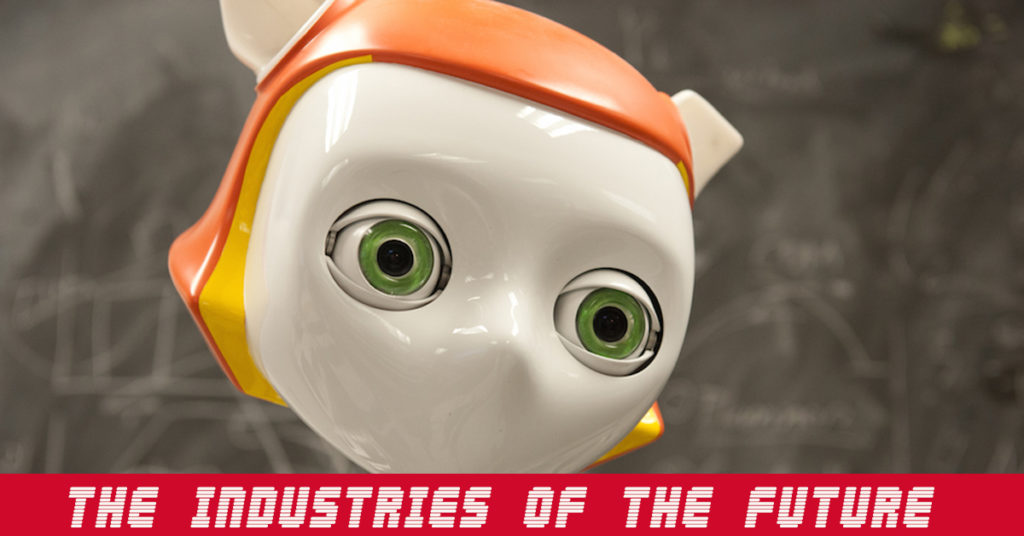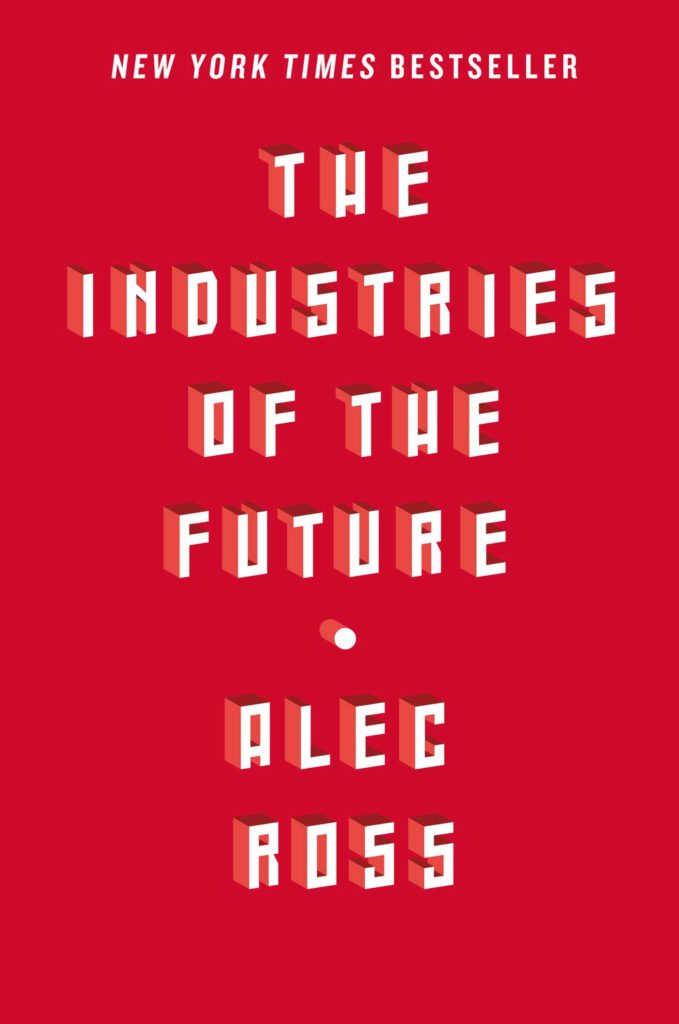
Overview
In The Industries of the Future, Alec Ross, a leading innovation expert, describes a fascinating future and how we can navigate it. He breaks the book up into seven parts, each one focusing on various facets of the future, from robotics to the weaponization of code.
Ross grew up in Charleston, West Virginia (“coal country”) and frequently mentions how globalization and automation have affected his hometown and how it will continue to do so. He served as a Senior Advisor for Innovation to Secretary of State Hillary Clinton, and he draws extensively on his experiences in the State Department.
Preparing for the Future
The most interesting lesson from this book is what individuals and governments can do to prepare for a future dominated by artificial intelligence, genomics, and robotics. For starters, individuals should learn how to code.
“My approach in our family is my kids need to learn two languages; one is Spanish – they’ve learned it from day one – and the second will be like Python or some other technical language, which they’ll learn when they’re six and older.” – The Industries of the Future
I have long supported this. In fact, last spring, I led a Python course for middle and high school students in my hometown. The point of learning computer science is more than having a technical skill; it’s a way to understand the world better. You do it because it teaches you to think differently, and if you’re not learning it, but others are, you’ll be less valuable in the industries of the future.
For governments, economic openness, and investments in technology, science, and research will play a crucial role in their nations’ success. Estonia, “the little country that could,” is Ross’s prime example of how a country should operate to be successful in the future. Indeed, Estonia rose from ruin at the end of Soviet occupation in 1991 to become one of the world’s most innovative societies.
It accomplished this by abolishing tariffs and ending export restrictions; amending citizenship laws to encourage foreign investment; guaranteeing internet access as a human right. Ranking as one of the most globally integrated eastern European economies, Estonia has become a center for global investment and has prepared itself well for the industries of the future.
Recommendation
I recommend this book and others like it. I was relatively familiar with many of Ross’s prognostications and examples (I read a lot on this topic), however, he does a much better job of explaining complex ideas in an accessible, brief format than most authors.
One day, robots will be our caretakers and house cleaners; we will be adjusting our genes to be free of illness; everything we do will produce massive amounts of data that demand to be discerned by data scientists and algorithms. It’s an exciting future, and it’s only getting started.
Get your copy of The Industries of the Future

Other books like this: The Inevitable